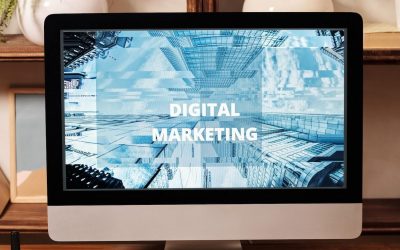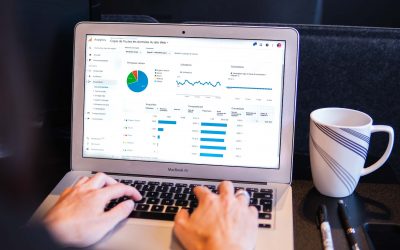
As experts in the internet marketing industry, we often run into clients and individuals who can’t seem to see the value in Pay Per Click (PPC) advertising. You could show them all the statics in the world, but it may still not be all that convincing.
In fact, anything short of running pilot ad campaigns may not convince them. But that might not always be an option. The same goes for businesspeople reading this article on the fence about Google Ads, Bing Ads or a similar type of PPC advertising.
For starters, PPC generally offers the following benefits:
- Results are easy to track and consequently measure and improve.
- You get a wealth of useful information from the data (useful for SEO, CRO, etc).
- It works well with a multitude of marketing channels.
- The barrier to entry is just a credit or debit card with some industry knowledge and good web design (web design is optional, but it does make a difference).
If anything, it is important to consider why some of the most established brands continue to use PPC advertising. Not only is it great for pulling in traffic from a specific target audience, but an excellent branding tool when used correctly.
If PPC advertising isn’t part of your marketing toolbox, we can bet you’re losing out on a lot of traffic. That said, here are seven more benefits of PPC advertising.
PPC Compliments Other Marketing Channels
Many businesses use content marketing with content calendars and editorial guidelines optimized for SEO. Using another marketing channel will not conflict with PPC advertising but instead, compliment it.
While the investment needed to produce unique and original content to support the buying cycle and establish yourself as an authority in the industry isn’t going to waste, PPC ads can help drive visitors to the content.
The result is that you see results from the content sooner rather than later. It improves the ROI of your content exponentially, especially if it’s time-sensitive content.
SEO works well with PPC since they are pretty much targeting the same audience, i.e., people searching for products, services, or information that you’re offering.
The click, impression, and consequently conversions can help offer better insight into what keywords are working, which the SEO team can then prioritize with their efforts.
The reverse is also true as organic traffic performance data from SEO can help determine what keywords to target with PPC. All of which helps businesses achieve their goals in the most efficient and eventually cost-effective manner.
One instance of this in action is remarketing. ‘Remarketing’ for the uninitiated is showing ads to people who might have visited your website earlier, based on specific rules you choose.
Remarketing is a great place to start with a PPC campaign since it offers lower-priced clicks and brings in prospects who are lower down the sales funnel.
Campaigns can be further optimized based on data from previous ones (campaigns), which consequently improves a business’s ROI considerably.
PPC Can Be Measured and Tracked
As a business that’s investing in advertising and branding, the ability to track results is invaluable. PPC advertising platforms like Google Ads make measuring and tracking results easy.
Google Ads tool, for instance, can be combined with Google Analytics to evaluate performance details like impressions, conversions, clicks, etc.
The Google Ads platform is versatile because it allows advertisers to run ads in a variety of ad formats and across various networks.
Advertisers can run ads across numerous Google-owned properties like YouTube pre-roll ads, Display & Discovery Ads which can further boost awareness
The stats show how the campaigns perform and the type of traffic your site is receiving for every dollar spent, which isn’t possible when the business is receiving traffic through SEO.
Quick and Easy
Jumping into PPC marketing and advertising is relatively quicker than spending time and often money on search engine optimization (SEO). While SEO certainly has its place in your marketing toolbox, PPC is quicker.
You can, for instance, set up a Google Ads offer within minutes and rank your ads above all your competitors in organic search results.
PPC allows you to cast a much wider net to find new customers or reach new people. Plus, most of what is needed, from research to campaign building and writing ad copy, is all done within the platform.
So, there is no need to involve your development teams aside from maybe setting up conversion tracking for all your landing pages.
PPC Advertisements Help Achieve Business Goals
Often this is the most compelling reason to invest in PPC advertising. It will help you achieve a large spectrum of marketing, branding and other business goals.
Whether you want to generate leads, require brand exposure, or convert traffic into sales, PPC can do it all. Also, the beauty of pay-per-click advertising is that almost every conversion can be tracked.
PPC offers the support required for all parts of the sales funnel and provides the needed path a prospect needs to take from awareness to finally converting. You can also set targeting, granular goals and test new ideas that contribute to your vertical’s long-term success.

PPC Advertising Gives You Granular Control Over Each Campaign
The default campaign settings of, let’s say, the Google Ads platform may have its nuances; you can finetune it to match your business’s goals. You start with choosing the keywords also referred to as placements and added restrictions for the campaign.
Advertisers also have a lot of budget flexibility, so it is possible to start with as little as $50 in some industries and see measurable results.
Set ad budgets and bid based on what you’re willing to spend. It is just as easy to scale up if you see positive results from the campaign, or you can just pause the campaign. In our experience, this level of control is unheard of with other forms of marketing and advertising, even on social media sites.
While the algorithm has the final say on how your ads are positioned and what you end up spending as compared to the competition, that too can be finetuned. Making changes to your landing page copy, keywords, etc., can all help improve your return on investment (ROI) from PPC.
We admit that having experience running Google Ads gives you an edge which is why people hire certified experts, but nothing is stopping a business owner from trying it out themselves.
If you are a business owner, we urge you to create a marketing strategy and use PPC to target your audiences.
PPC Allows Taking A Multi-layered Approach
It isn’t uncommon for advertisers to use PPC to take a multi-layered approach to test ads and ensure that they cover a much broader set of variables to improve brand exposure.
The approach can include using text ads geared towards keywords and running ads via remarketing, which are based on targets’ previous behavior or even audience from a specific demographic on the network.
Testing and trying out different angles can help ensure that your business fully leverages the power Google Ads and search engines like Google has to offer.
When it comes to conversions, you can test and see what performs best while setting tolerances for cost per click, cost per acquisition, and your budget to see which method offers the best value.
Perhaps the biggest advantage of PPC is the ability to reach people who are otherwise not already your audience or part of it. So, you define how wide of a net you should cast to get the most out of every campaign.
Speaking of campaigns, you can have as many as you want, and you can define a separate set of objectives for each.
Lots of Valuable Marketing Data For Your Industry
Sure, Google Ads gives you a lot of campaign-level performance data. However, the value of the information you gain is well beyond just performance data in our experience.
We alluded to this as part of an earlier point that click, impressions, and conversion data for every keyword can be used to optimize your content marketing and SEO strategy further.
Tools such as the Google Ads’ display planner and keyword planner show where most of your audience is located.
You can also use the data to find out how well your competition is doing using third-party tools like iSpionage, and KeywordSpy to name a few. The tools can help you build a profile to see what you’re up against in the industry.
Are The Benefits of PPC Advertising Worth It to Your Business?
The best way to prove that Google Adwords or any other pay-per-click advertising campaign works is to run it and compare the results to organic sources of traffic.
You can factor the cost of running the PPC ads, i.e., their price per click or impression, as compared to the traffic that might be coming in from traditional advertising or digital marketing.
The approach will help provide you with enough information to decide if PPC is right for your business or for your client, at which point it can be recommended. Most pilot PPC campaigns can cost a few hundred dollars for a couple of weeks, depending on the industry.
However, the data gleaned from them can be instrumental in helping other facets of the business’s branding and advertising goals.
Most of all, it will convince your boss, client or anyone else on the fence that PPC can, in fact, work for them, and that too with a much higher return on investment (ROI). In our opinion, it does not have to be one or the other.
The latest posts from the blog:
What is Digital Marketing?
[seopress_breadcrumbs] What is Digital Marketing? Primarily digital marketing refers to marketing that includes the use of electronic devices for promotional messaging and measures. However, in practice, digital marketing campaigns are mainly run on the internet and...
read moreThe Fundamentals of Digital Marketing
[seopress_breadcrumbs] The Fundamentals of Digital Marketing The fundamentals of digital marketing happen to be quite a bit different from regular or traditional marketing fundamentals. Starting twenty years ago, marketing started taking a new direction with the...
read moreWhat is Paid Social Media Advertising?
[seopress_breadcrumbs] What is Paid Social Media Advertising? Paid social media advertising, as the term suggests, refers to social media ads. Unpaid or organic posts are ones that the social media platform's algorithm promotes based on a few dozen factors. However,...
read moreWhat is Social Media Marketing?
[seopress_breadcrumbs] What is Social Media Marketing? Over the past couple of years, we've all heard about presidential campaigns being run on social media and malicious companies harvesting people's data. While rare, these are stories that almost always make the...
read moreWhat’s the Best Social Media for Business?
[seopress_breadcrumbs] What's the Best Social Media for Business? Many business owners new to the world of social media advertising often ask which social media platform is best for business. The problem with answering this question is that there are half a dozen...
read moreHow Does PPC Work?
[seopress_breadcrumbs] One of the most important digital marketing goals is to get a site to rank high organically on a search engine results page (most likely Google) for the most high-volume keywords in the industry. However, SEO takes time, effort, and knowledge....
read moreABOUT ITONIC
A full-service digital marketing agency based in New York & London. Delivering world-class results to hit our revered clients. Hitting KPI's across Search, Social & Display.
Email: hello@iTonic.com
US: +1 646-583-0068
UK: +44 20 8638 0668
© iTONIC.COM 2024. All rights reserved
Subscribe to newsletter






